Fritextsökning
Artiklar per år
Innehållstyper
-

Astra Zeneca’s Sweden CEO: “We have great faith in our portfolio”
It all started with a summer job as an operator at Astra’s chemical factory in Snäckviken, just outside Södertälje. More than three decades and countless different assignments later, Per Alfredsson, born and raised in Södertälje, is CEO of Astra Zeneca Sweden, which employs 7800 people in Södertälje, Stockholm and Gothenburg. “It was a very special feeling to be in charge of the entire organisation,” he says in an interview about his career and potential future blockbusters.
-

Samuel Lagercrantz: The government’s performance in healthcare and life sciences so far
Since the change of government in Sweden, developments in the healthcare sector have shown promising signs, but the outlook in life sciences is less promising, writes Samuel Lagercrantz in an editorial.
-

Elypta awarded one million USD from the Star Trek creator’s foundation
Swedish company Elypta, which develops methods for early cancer detection, has been awarded one million USD from an unexpected source: a foundation set up in memory of the creator of Star Trek.
-

KI’s new President: “We need to work closer together”
A closer link between research and education and a stronger “we-feeling” are aims that Annika Östman Wernerson sets out to achieve as the new President of Karolinska Institutet. She will not give up her research entirely though. “I think it’s crucial to maintain a close presence in the business,” she says.
-

The Swedish National Board of Health and Welfare rejects prioritising andrology as a speciality
Male infertility can be linked to a shorter lifespan and several severe diseases, but when couples who want children are examined, the focus is on the woman. Experts in the field claim that andrology needs to become a speciality in Sweden to increase awareness and knowledge. But the Swedish National Board of Health and Welfare says that it is not a priority.
-

How critical are the “Spermageddon” reports? – Researchers call for action
A much talked about meta-study indicates that sperm concentration in men’s seminal fluid has halved in 40 years. Experts in andrology that Life Science Sweden speaks to believe that the results must be taken seriously, and call for action from the Swedish authorities.
-
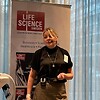
Swedish breakthrough in Alzheimer’s: “We can finally present great data”
Treatments for Alzheimer’s disease are currently among the hottest topics in drug development. Two Swedish research companies with high ambitions and successes in the field participated in Bioscience 2022 conference at Life City in Hagastaden, Stockholm.
-

Neanderthal genes and Nobel Prize in a popular lecture at Bioscience
An inherited gene variant from our ”evolutionary cousins” – the extinct Neanderthals – may affect how our bodies break down certain drugs. “It’s only a matter of time before we actively start screening for it,” said KI researcher Hugo Zeberg when describing the study at Bioscience 2022.
-
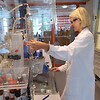
A green nursery for biotech rooted in the Scanian soil
Red Glead has established itself as one of Lund’s largest companies in pharmaceutical development. Life Science Sweden went to Skåne and met two of the founders, Johan Evenäs and Martina Kvist Reimer.
-
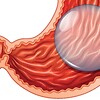
Alert from the Swedish Medicines Agency: Many complications with gastric balloons
According to the Swedish Medicines Agency, an increasing number of serious complications are being reported in procedures with gastric balloons as a method for weight loss. The authority fears significant shortcomings in the information to patients both before and after the procedure.
-

Bought a tablet factory – and built his own empire
In 1995, Thomas Eldered was CEO of one of Pharmacia’s factories in the Stockholm area when the Swedish pharmaceutical giant, after a takeover, decided to move its production abroad. 34-year-old Thomas was facing an imminent risk of losing his job. However, instead, it actually turned out to be the starting point for one of the biggest success stories in Swedish life science.
-

Anna Törner: Kalashnikovs in a new guise
Thanks to resisting European regulatory authorities, Europe has been spared the opioid epidemic. In the 1960s, the situation was the opposite as the American pharmaceutical authority, the Food and Drug Administration (FDA), refused to approve thalidomide (Neurosedyn), writes Anna Törner in a column.
-

Newly discovered gene variant linked to protection against abdominal obesity
American researchers believe they have identified a rare gene mutation that protects against abdominal obesity and metabolic syndrome. The ambition is that the discovery will lead to new treatments that can help reduce the risk of type 2 diabetes and coronary artery disease.
-

Collaboration for a simpler production of gene therapies launched
A collaboration between universities and companies aims at providing better production methods for the development of gene therapies. The initiative is led by Johan Rockberg, Professor at KTH.
-

Study: Our behaviour may have been guided by wishful thinking during the pandemic
A new study suggests that we systematically underestimate health risks if and when it suits us. This was especially true during the pandemic, as our risk assessments may have been guided by wishful thinking rather than a rational perception of the risks.
-

IVI’s Director General on establishing in Sweden: Will need up to 40 employees
The International Vaccine Institute, IVI, hopes to have its first staff on-site in Stockholm within a couple of months, says the institute’s Director General Jerome Kim in an interview with Life Science Sweden.
-

Anna Törner: To kill your darlings
Hopes were high when Anna Törner and her colleague started a study on a dietary supplement that seemed unbelievably good. “Enthusiastically, we dreamed of exciting results and perhaps a publication in a high-impact journal,” she writes in a column.
-
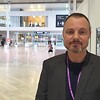
Det här vet vi om den nya coronavarianten omikron XE
En ny rekombinant variant av coronaviruset med namnet omikron XE har väckt uppmärksamhet. Life Science Sweden frågade Niklas Arnberg, professor i virologi vid Umeå universitet, vad vi vet om den nya varianten.
-
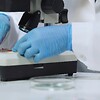
WHO: Nya omikronvarianten XE kan vara mer smittsam
Den nya varianten omikron XE kan vara tio procent mer smittsam än de tidigare omikronvarianterna, rapporterar WHO och uppmanar länder att återuppta sekvensering för att kunna upptäcka nya varianter.
-

Marie Gårdmark: Finally, it’s time for a revision of the EU pharma legislation
A challenge for the EU Commission is to deliver a new framework that will also take care of another “pillar” of the pharmaceutical strategy, namely, to ensure that new medicines will be available for all citizens in Europe, writes Marie Gårdmark in a column.
-

Study: An objective diagnosis of constant tinnitus may be possible
A new method that measures brain activity during sound stimulation can make it possible to objectively diagnose and identify people who suffer from constant tinnitus, which was demonstrated in a study made by researchers at the Karolinska Institute.
-
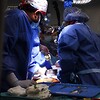
Patient som fick grishjärta återhämtar sig – inga tecken på avstötning
Den amerikanske man som fick ett genmodifierat grishjärta transplanterat i början av året återhämtar sig fortfarande på sjukhus. Efter fem veckor syns inga tecken på avstötning, enligt läkare.
-

The route to vaccines for everyone: “We did not just sit around and wait”
The pandemic was in full swing, and no one knew when or even if a vaccine would come. At that point, the Swedish Minister of Social Affairs called with a proposal, and Richard Bergström did not hesitate. “I already had a notion that this would work,” he says in an interview with Life Science Sweden.
-

Anna Törner: Success requires bold decisions!
“Doing things right is fine, but doing the right things as soon as possible is even better”, writes Anna Törner in a column.